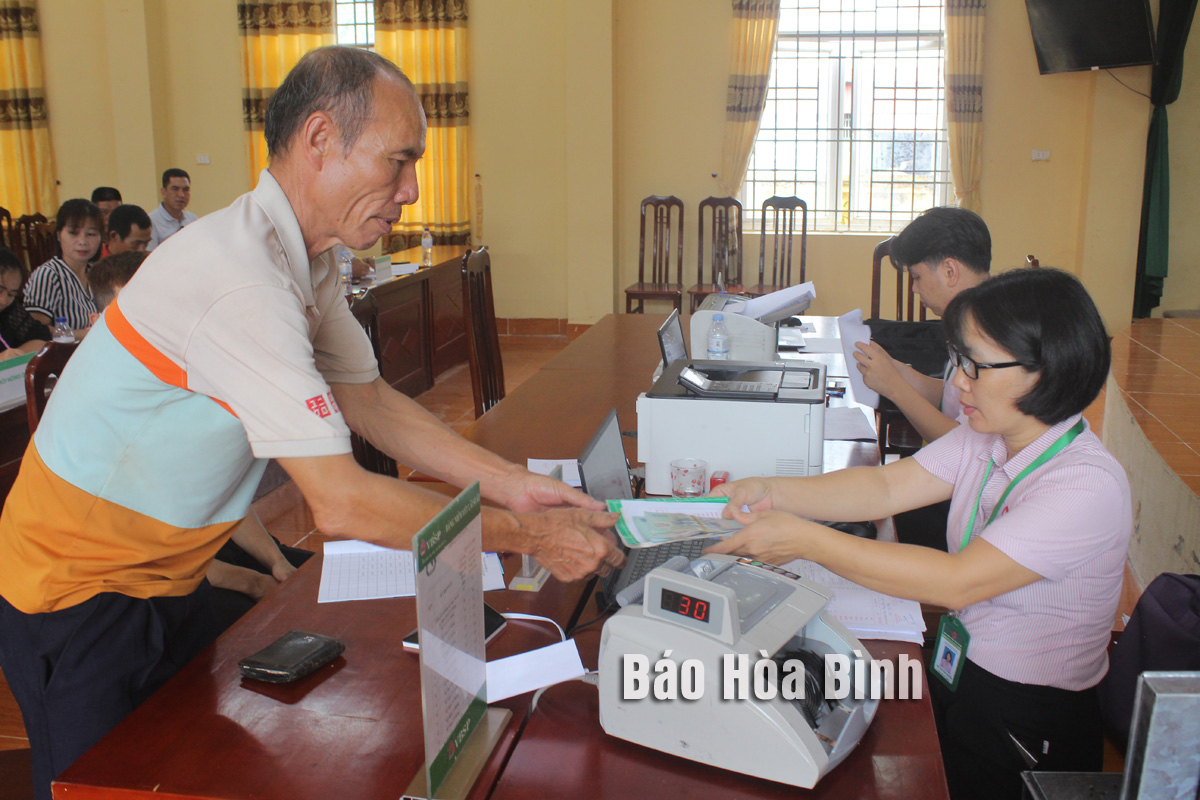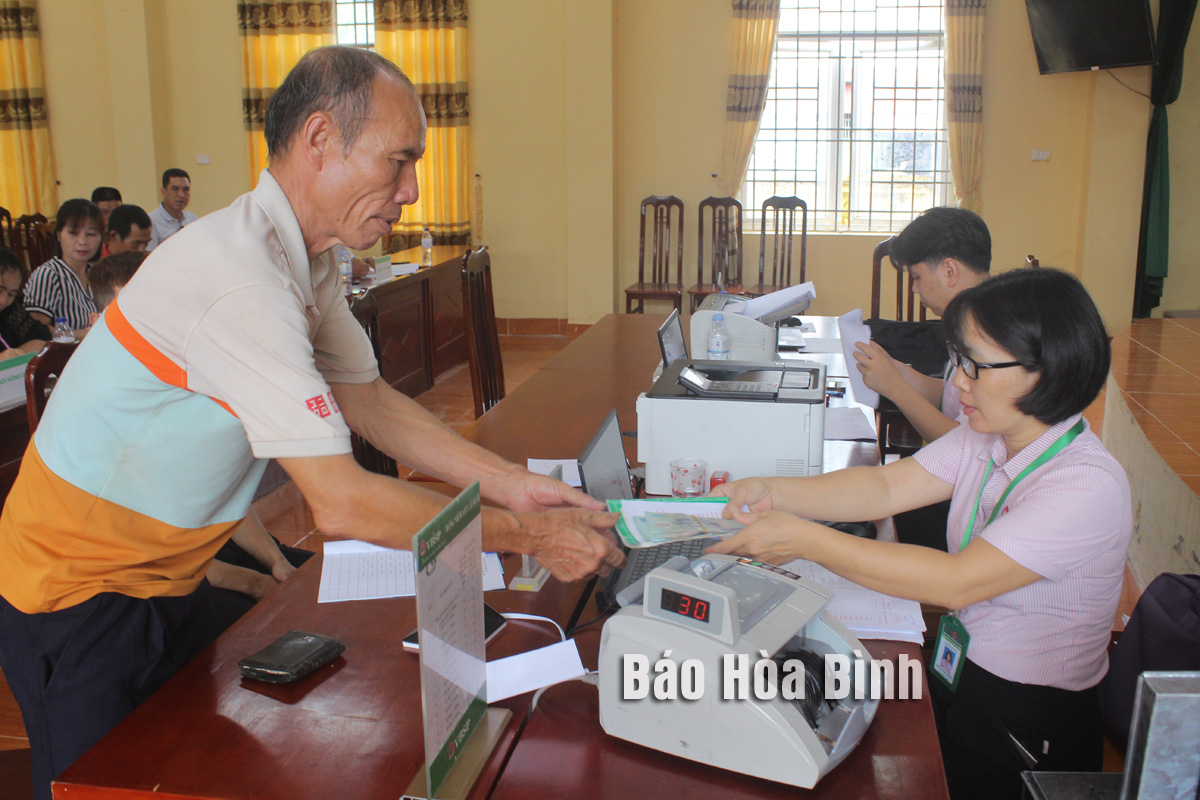
Accessing preferential loans from the Vietnam Bank for Social Policies (VBSP), many households in Tan Lac district have escaped poverty and many students progressed on their quest for knowledge.

Bui Van Nam from Chua hamlet, Tu Ne commune, Tan Lac district,
completes repayment of a student loan to the VBSP after both his sons graduated
from university and secured stable jobs.
One day in June, Bui Van Nam – a resident in Chua hamlet, Tu
Ne commune, Tan Lac district – visited the commune's transaction point to
settle a student loan from the VBSP. Years ago, his family decided to borrow
policy funds to invest in their children's university education. The investment
has yielded fruit, with their sons now working in the educational and medical
fields.
Nam shared that the family had many difficulties, so
deciding to send the boys to university put them under significant pressure.
With so many expenses to cover, without the State's preferential capital
support it could be extremely hard for them to do so and reap the fruits of
today. "My family is deeply grateful for the Party’s and State's policy
funding, which enabled our disadvantaged children to pursue education.”
Meanwhile, Ha Van Nhuong's family in Man Duc town’s Hong
Duong residential area also reaped fruitful results thanks to the policy
credit. With a loan of 50 million VND (2,000 USD) from the bank, their economic
situation has steadily improved. Through grapefruit cultivation and livestock
farming, they now earn over 150 million VND on an annual basis.
Currently, 15 policy credit programmes are being implemented
in Tan Lac district, with a debt balance from over 15,600 households totaling
575.4 billion VND. In the first half of 2024 alone, the local trade office of
the VBSP disbursed over 105.7 billion VND to poor households and other policy
beneficiaries, hence the creation of more than 300 jobs as well as the construction
of 675 clean water and 648 household sanitation facilities.
Director of the office Nguyen Tuan Ngoc said local residents
still have high demand for policy loans. In recent years, to supplement funds
for preferential credit programmes, in addition to annual allocations from
higher-level banks, the branch has advised authorities of the district to
allocate a portion of the local budget to the VBSP’s operation here. "We have
also actively mobilised idle funds within the community," Ngoc added.
According to data from the Hoa Binh Provincial Party Committee, the industrial production index for the first six months of 2025 is estimated to have increased by 20% compared to the same period last year. This marks the highest year-on-year growth rate for this period since 2020.
In the first six months of 2025, Hoa Binh province’s export turnover was estimated at 1.145 billion USD, marking an 18.11% increase compared to the same period in 2024. Import turnover was estimated at $ 804 million, a 17.15% increase, which helped the province maintain a positive trade balance.
The lives of the ethnic minority farmers in Tan Lac district have gradually improved thanks to the new directions in agricultural production. This is a testament to the collective strength fostered through the professional associations and groups implemented by various levels of the district’s Farmers’ Union.
With the motto the "product quality comes first,” after nearly one year of establishment and operation, Muong village’s Clean Food Agricultural and Commercial Cooperative, located in Cau Hamlet, Hung Son Commune (Kim Boi district), has launched reputable, high-quality agricultural products to the market that are well-received by consumers. The products such as Muong village’s pork sausage, salt-cured chicken, and salt-cured pork hocks have gradually carved out a place in the market and they are on the path to obtaining the OCOP certification.
In the past, the phrase "bumper harvest, rock-bottom prices" was a familiar refrain for Vietnamese farmers engaged in fragmented, small-scale agriculture. But today, a new spirit is emerging across rural areas of Hoa Binh province - one of collaboration, organisation, and collective economic models that provide a stable foundation for production.
Maintaining growing area codes and packing facility codes in accordance with regulations is a mandatory requirement for agricultural products to be eligible for export. Recently, the Department of Agriculture and Environment of Hoa Binh province has intensified technical supervision of designated farming areas and packing facilities to safeguard the "green passport" that enables its products to access international markets.



